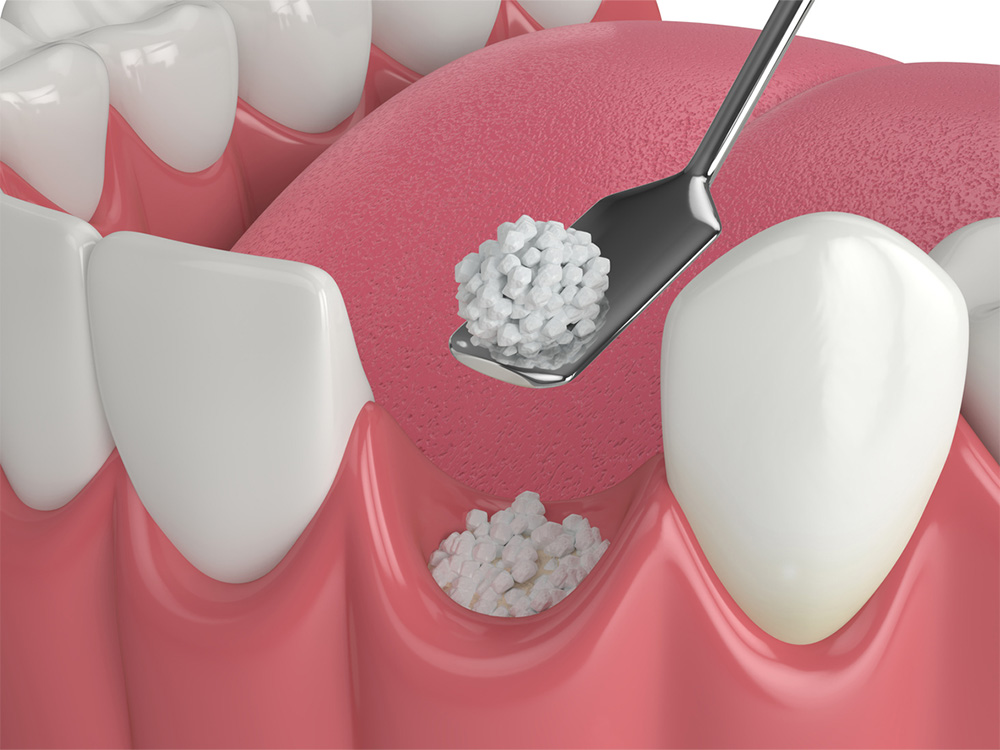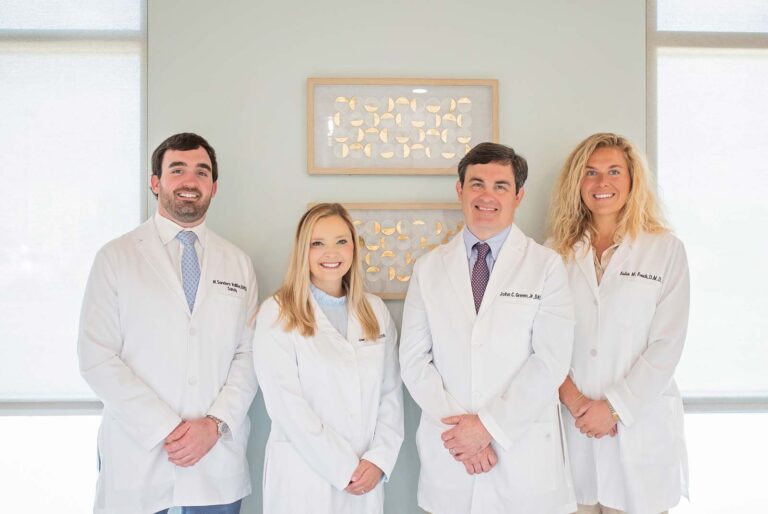Dental Bone Grafting
Dental bone grafting is a surgical procedure that involves transplanting bone tissue to repair or rebuild bones. This procedure is typically done to support dental implants by recreating missing bone and supporting tissue.
Dental Bone Grafting in Fairhope, AL
Dental bone grafting is necessary when there is a deficiency of natural bone in the mouth, which makes it difficult to support dental implants. This deficiency can be caused by developmental defects, gum disease, facial injury or trauma, or empty spaces after teeth are removed.
Several types of dental bone grafts are available, and the best solution depends on the extent of the damage and the location of the lost tooth.
Dental bone grafts are a fairly standard procedure and are safe. They can be a great long-term solution for those who have lost a tooth due to periodontal disease, injury, or another type of dental or mouth infection.

-
What is a dental bone graft?
Dental bone grafting is a surgical procedure that helps regenerate bone damaged or lost due to disease or injury. This procedure involves using natural or synthetic materials to create a graft, which is then placed in the affected area to stimulate the growth of new bone cells.
The graft may consist of processed bone minerals or other materials that help your body create new bone over time. This procedure is generally considered to be minimally invasive and can be an effective way to restore bone density and function.
-
Are dental bone grafts painful?
Dental bone grafts are an outpatient procedure that are often performed before getting a dental implant or tooth replacement. You can expect very little to no pain during the procedure and the healing process.
-
How long does it take to recover from a dental bone graft?
After a dental implant surgery, your dentist may prescribe antibiotics to prevent infection and pain medication in some cases. However, most patients don’t feel any pain, so pain medication usually isn’t necessary.
The first step to dental implants is usually a dental bone graft. Once the graft is done, your dentist needs to wait for your new bone to fuse with the natural bones in your mouth before continuing with the implant process. This timeframe varies for each individual but should take no longer than a couple of months.
To ensure the best outcome and promptly address any complications, it’s crucial to closely follow your post-operative care instructions.
More Questions?
If you have more questions about dental bone grafting, contact our office and we will be happy to discuss further.

